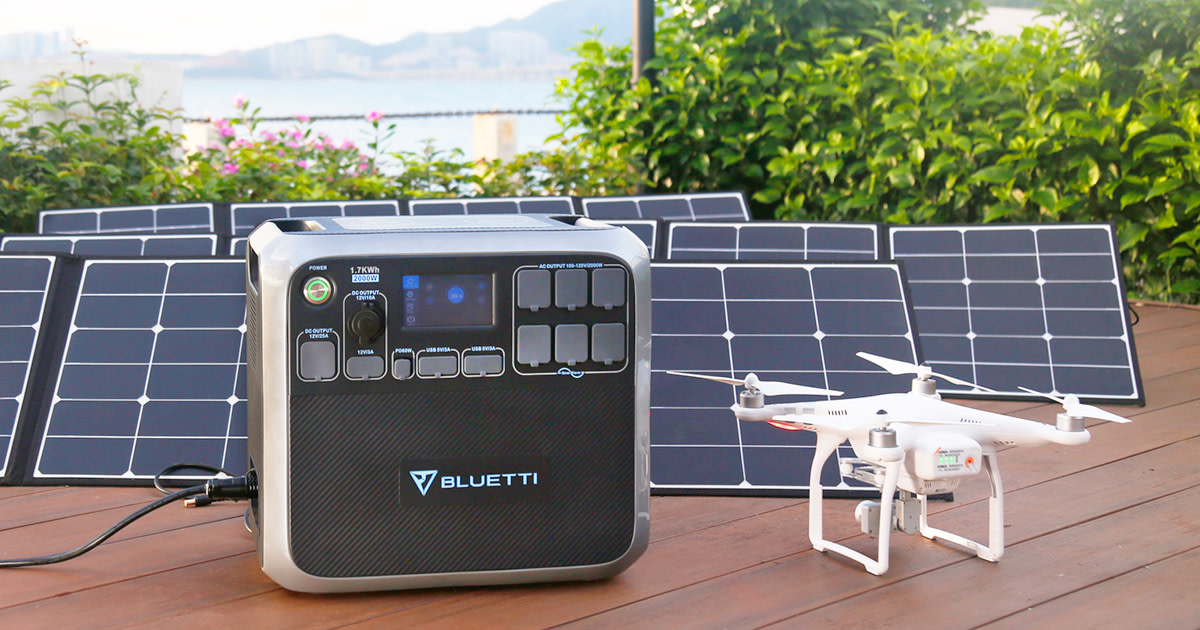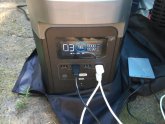Hi, everyone. I'm an electrical neophyte (very, very minimal knowledge of anything electrical and not very handy) but something of a prepper. I've been looking at Will's materials for the best solar generator for me. At this point I'm trying to decide between the Bluetti and Ecoflow Delta 1300. My needs are, first and foremost, to be able to run my CPAP machine with humidifier in an extended power outage. I might also need to run an air purifier and it would be nice to run a fan some of the time. Everything else is optional. Secondary benefit is I'd like to go camping again, which I haven't been able to do because of the CPAP use.
As I understand, the Ecoflow is recommended for that usage profile. I like that it recharges quickly with solar, because the CPAP is an electricity hog and the air purifier can be also. I can probably run the CPAP alone for about 3 nights with the Ecoflow, but if I add the air filter I'll probably have to recharge every day.
But two things about the Ecoflow concern me. One is that I've read in various reviews that it's really noisy when it's charging or operating at high capacity. How noisy is it? Is it possible to mitigate the noise somehow? I particularly don't want a lot of noise if I'm camping -- kind of defeats the purpose of being out in nature. But also sleeping at home to a loud hum is disruptive and bad for hearing!
Also, I understand that Ecoflow provides terrible, or possibly non-existent support, so what's plan B if I'm having trouble with my unit or questions about it? As I said, I'm not very handy and not a DIYer in general, as far as projects around the house are concerned. I'm not your person to take a unit apart, fix it and put it back together. So, for us plebes, is it basically inadvisable to go with Ecoflow or are there places to get support from users or other resources? Is it worth the risk?
Thanks in advance for answers and help.
As I understand, the Ecoflow is recommended for that usage profile. I like that it recharges quickly with solar, because the CPAP is an electricity hog and the air purifier can be also. I can probably run the CPAP alone for about 3 nights with the Ecoflow, but if I add the air filter I'll probably have to recharge every day.
But two things about the Ecoflow concern me. One is that I've read in various reviews that it's really noisy when it's charging or operating at high capacity. How noisy is it? Is it possible to mitigate the noise somehow? I particularly don't want a lot of noise if I'm camping -- kind of defeats the purpose of being out in nature. But also sleeping at home to a loud hum is disruptive and bad for hearing!
Also, I understand that Ecoflow provides terrible, or possibly non-existent support, so what's plan B if I'm having trouble with my unit or questions about it? As I said, I'm not very handy and not a DIYer in general, as far as projects around the house are concerned. I'm not your person to take a unit apart, fix it and put it back together. So, for us plebes, is it basically inadvisable to go with Ecoflow or are there places to get support from users or other resources? Is it worth the risk?
Thanks in advance for answers and help.




